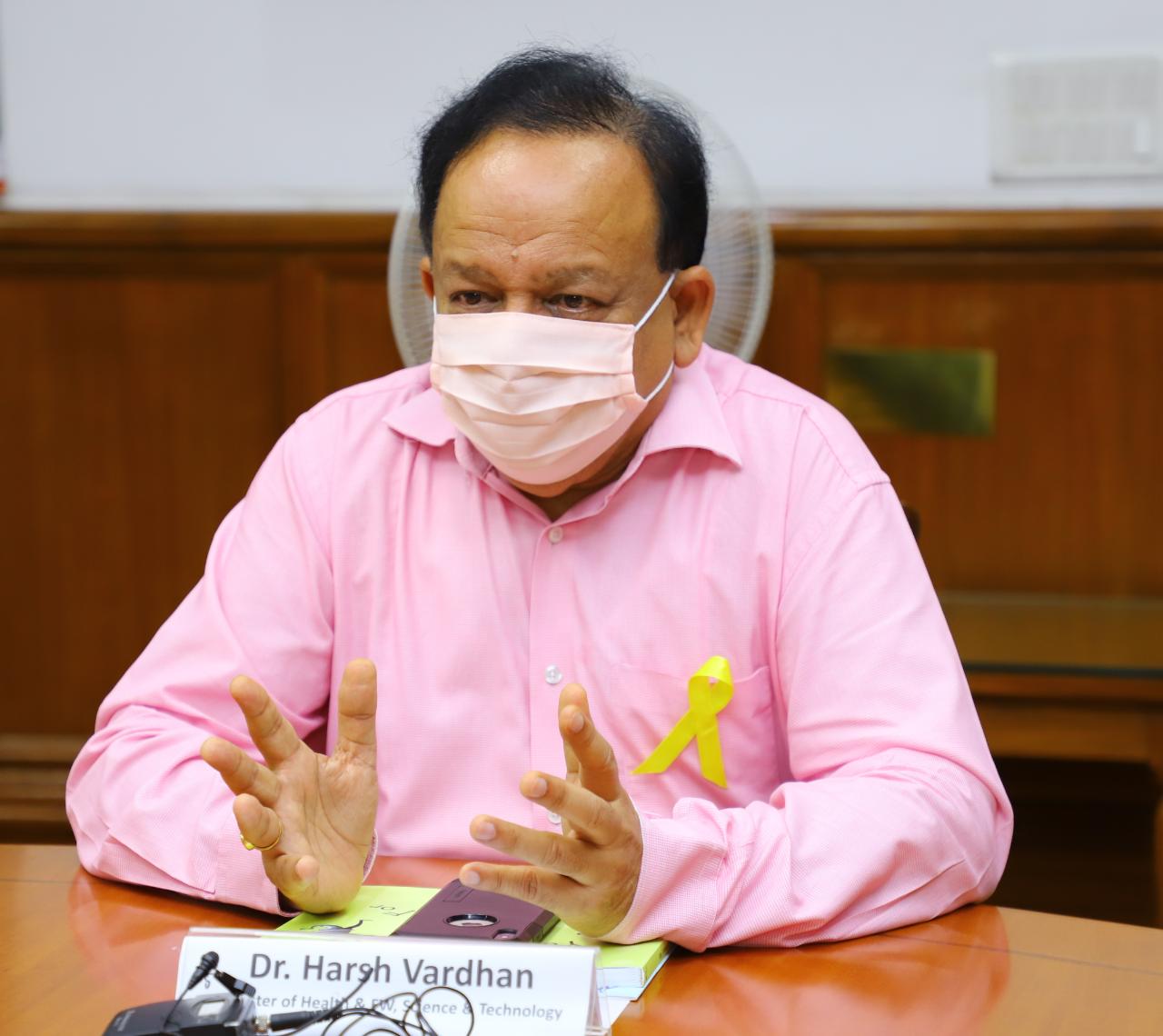Government is implementing several schemes to encourage students/youth of the country towards the field of science and technology: Dr. Harsh Vardhan
It has been a part of Government’s Science and Technology (S&T) policy toencourage the students/youth of the country towards the field of science and technology.
The first three key elements of Science, Technology, and Innovation (STI) Policy of 2013
Are:
- Promoting the spread of scientific temper amongst all sections of society.
- Enhancing skill for applications of science among the young from all social strata.
- Making careers in science, research and innovation attractive enough for talentedand bright minds.
Government is implementing several schemes to encourage students/youth of the countrytowards the field of science and technology. The “Innovation in Science Pursuit for InspiredResearch (INSPIRE)” is a major scheme in operation to attract, motivate, nurture and traintalented and meritorious students to study science subjects and opt for careers in Research andDevelopment (R&D) to build a pipeline of quality manpower, thereby widening the R&Dmanpower base of the country. Close to 42,000 young students of class 6th – 10th receivethe INSPIRE Award MANAK (Million Minds Augmenting National Aspiration and Knowledge)per year from all recognized schools across the country. About 20,000 students/year attendINSPIRE Internship Camps to experience the joys of creative pursuit of science. About 10,000students in top 1% of Class 12th Board examinations receive Scholarships For HigherEducation (SHE) every year to pursue B.Sc and M.Sc courses in Basic and NaturalSciences. Every year, about 1,000 students are availing INSPIRE Fellowships for pursuingPh.D. degree. 100 young researchers/year are availing INSPIRE Faculty Fellowships toestablish themselves as independent post-doctoral researchers. In order to attract andmotivate young students, several international programmes are also being implemented bythe Department of Science and Technology (DST) such as Lindau meeting with NobelLaureates, Asian Science Camps, Raman Charpak Fellowships, Sakura Exchange programme,etc.
Autonomous institutions in the DST family also train large number of summerresearch interns, Ph.D. and post-doctoral fellows, organize large number of importantnational/international conferences, outreach programmes for school and college students
including lectures by their scientists, orientation programmes etc.
The Science and Engineering Research Board (SERB), a statutory body of DST supports
young researchers in a big way, through early career grants, core research grants, doctoraland postdoctoral fellowships etc. Some of the notable programmes targeted at youngscientists include: National Postdoctoral Fellowship (N-PDF), Start-up Research Grant(SRG), the Prime Minister’s Fellowship for Doctoral Research, Swarnajayanti Fellowships etc.
These schemes are designed to identify promising young researchers and provide them
with training and research opportunities in frontier areas of science and engineering. Close to250 young researchers receive National Postdoctoral Fellowships annually. Majority of the500 scientists supported under the Start-up Research Grant have been budding youngresearchers who take up high-end R&D in the country. There are 100 slots of fellowshipsavailable annually to researchers to pursue Ph.D.in partnership with Industry under the PMFellowship for Doctoral Research.
The Council of Scientific and Industrial Research (CSIR) has been providingdoctoral and postdoctoral fellowships to young and budding researchers through its variousfellowship programmes such as Junior Research Fellowship –National Eligibility Test (JRFNET),Shyama Prasad Mukherjee Fellowship (SPMF), Senior Research Fellowship (SRFDirect),Research Associateships and CSIR-Nehru Science Postdoctoral Research
Fellowship (CSIR-NSPDF). Annually, CSIR offers about 4500-5000 such fellowships to youngstudents who are going to be future scientists. At any given time, CSIR supports about about8000-9000 young researchers in their pursuit for doctoral and postdoctoral research in the fieldof science and technology.
The Department of Biotechnology (DBT) has implemented integrated HumanResource Development Programme in Biotechnology including Star College Scheme forstrengthening of Undergraduate Science Education, Postgraduate Teaching Programme,
DBT-Junior Research Fellowship Programme, DBT-Research Associateship and DBTBiotechnologyIndustry Training (Apprenticeship) Programme in areas of Biotechnology andLife Sciences.
Government has taken several steps to promote affordable sustainable innovations in the
field of science and technology. DST initiated a new program in 2016 called Promoting andAccelerating Young and Aspiring technology entrepreneurs (PRAYAS) under National Initiativefor Developing and Harnessing Innovations (NIDHI) with the objective to support conversion ofan innovative idea into a working prototype developed by any innovator. This programmeis aimed to attract large number of young innovators who demonstrate problem-solving zealand abilities and also to enhance the pipeline in terms of quality and number of innovativestartups to the incubators. This will build a vibrant innovation ecosystem, by establishinga network of innovators, academia, mentors and incubators.
For promoting affordable sustainable innovation in the field of science andtechnology, the National Innovation Foundation (NIF), an autonomous institution underDST organizes a biennial National Grassroots Innovation and Outstanding TraditionalKnowledge Awards and for it, common people (including youth) share their ideas andinnovations. NIF provides value-addition and incubation support to the innovators so that theirtechnologies can reach the market. NIF has also set up NIF Incubation and EntrepreneurshipCouncil (NIFientreC), a Technology Business Incubator, for setting up and incubatingcommercial ventures based on innovative technologies of common people of the country.
CSIR is implementing R&D as well as translational projects in various categories,namely, Focused Basic Research, Niche Creating Projects, Fast Track Translational Projects,Fast Track Commercialization Projects, HARIT Projects and Mission Projects for the purpose.
DBT is supporting affordable Healthcare R&D towards understanding the cause ofhuman diseases at genetic and molecular level that enable the development of innovativetherapies or preventive measures and early detection in areas like infectious diseases,chronic diseases, human genetics and genome analysis, maternal and child health, public
health and nutrition, vaccine research, bioengineering and bio design, stem cells andregenerative medicine. DBT is also supporting translational research for applicationdevelopment under Accelerated Translational Grant for Commercialization (ATGC)program. ATGC enables academic researchers to take their laboratory research leads withestablished proof-of-concept to the next phase.
This information was given by Minister of Science & Technology, Earth Sciences and Health & Family Welfare, Dr. Harsh Vardhan in a written reply to a question in the Rajya Sabha today.

